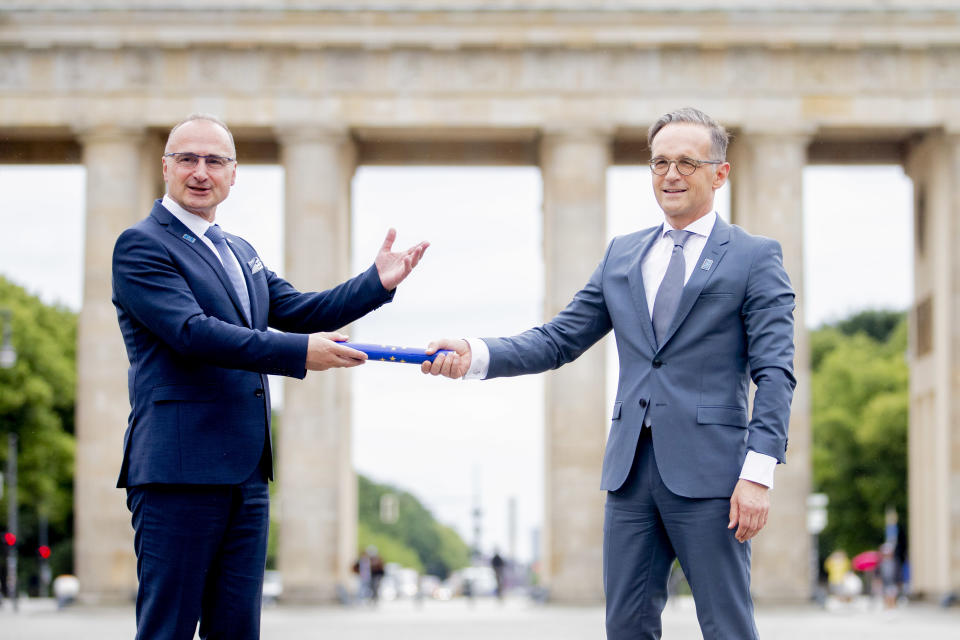Brexit deal and coronavirus recovery dominate Germany's EU presidency

Germany’s six-month presidency of the European Council (EC) kicked off this week, with two gargantuan tasks dominating its to-do list. It must get the 27-state bloc to agree on a coronavirus financial recovery fund and then manage the tense final sprint towards a Brexit trade agreement with the UK.
“Such big expectations are being put on this presidency from the other member states, from the Commission, but also from the outside Europe, that we almost need to worry about managing expectations,” German foreign minister Heiko Maas told journalists from the Foreign Press Association in Berlin on Wednesday evening.
Maas described the Brexit negotiations as “very, very tough,” and going “very, very slowly.”
That is also “because we are not sure where the British actually want to go, whether they want an agreement or not,” he said.
READ MORE: Merkel and Macron cement support for €750bn EU recovery fund
“At the moment, the British are talking about topics that are of particular importance to them, such as fishing... but the questions that are important to us have not been substantially discussed,” Maas said.
“We assume that there will be a tough negotiation phase in September and October.”
The agreement would need to be concluded by the end of October or in the first half of November, as it has to be to be ratified by EU nations.
Coronavirus and Brexit bookend Berlin’s presidency. Maas said expectations are pressing on Germany to first get EU-27 consensus on the coronavirus recovery fund and the EU’s seven-year budget at the start of its six months in the driving seat. By the end of the six months, the bloc and the UK need to have signed off on their future trade agreement.
Bracing for a no-deal Brexit
Chancellor Angela Merkel said in the Bundestag on Wednesday that she will push for a “good solution” on the Brexit agreement by Autumn, during Germany’s EC presidency, however she said that the EU needs to prepare itself for the eventuality that the Brexit talks on the trade deal will fail, and “an agreement will not come about.”
Face-to-face negotiations in Brussels began again this week, when the UK's chief negotiator, David Frost met with EU negotiator Michel Barnier in person for the first time since March, when cross-border travel was shut down due to the coronavirus outbreak.
Merkel’s words on Wednesday echo what her government wrote to other EU states in mid-June. The document, seen by Reuters, advised them to prepare for a potential no-deal Brexit — and “make it clear [to the UK] that there will be no agreement at any price.”
Michael Clauß, Berlin’s ambassador to the EU told Politico Playbook on Wednesday that the 27 EU states “won’t accept anything that would bring unfair competition into our house.”
“We’ll know in a few weeks’ time whether we can make progress at the negotiating table — or whether ideology will triumph over pragmatism,” Clauß said.

 Yahoo Finance
Yahoo Finance 